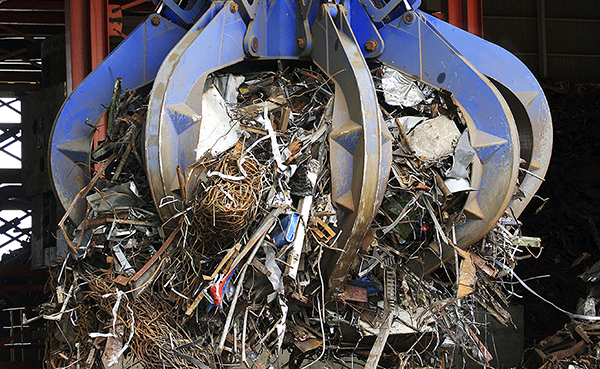The European Commission is considering changes to EU waste shipment regulations that could prove to be of “tremendous importance” and potentially highly damaging to ferrous scrap export flows. So said Olivier François of Galloo at the Bureau of International Recycling (BIR)’s World Recycling Convention on Tuesday.
One of the priorities established for the revision of the regulations is to restrict exports of materials designated as “waste”, including many of the high-specification materials produced by the recycling industry. Europe generates surpluses of “quality secondary raw materials” that could not be absorbed by its domestic market and so “we don’t think waste shipments should be restricted even further”, said Julia Blees, Senior Policy Officer at the European Recycling Industries’ Confederation. François agreed that such a move could lead to “tension” given that “many developing countries need the raw material”.
According to both speakers, the key phrase in the new Commission proposals is that users in importing countries should be operating under “broadly equivalent conditions” to those applying to consumers in the EU. This is in terms of both human health and environmental protection.
Aurelio Braconi, Senior Manager – Circular Economy and Raw Materials at European steel association Eurofer described the changes likely on account of the European Green Deal as a legislative “tsunami”. He expressed concern at the potential for a growing gap between practices and standards in Europe compared to the rest of the world. It is important, he said, that countries importing scrap applied “equivalent conditions” in terms of, for example, environmentally sound management.
Describing scrap as “an essential raw material”, Braconi observed: “We want to use more ferrous scrap, to recycle more ferrous scrap into new steel and new products, to increase our resource efficiency.” Many producers were looking at ways to “enlarge their product portfolio coming from scrap”. But to achieve this, it was a matter not just of supply and demand but also of quality, he added at the event attended by Kallanish.
BIR Trade & Environment Director Ross Bartley meanwhile explained BIR would be surveying relevant companies later this year. This will be to assess the cost burden of installing and running systems to detect radioactive metals inadvertently included in consignments arriving at scrap yards. There has to be an appreciation, he said, that the recycling industry was “doing a good job for society” by taking on costs in respect of radioactive sources lost or misplaced mostly by other industries.
Burcak Alpman Turkey






